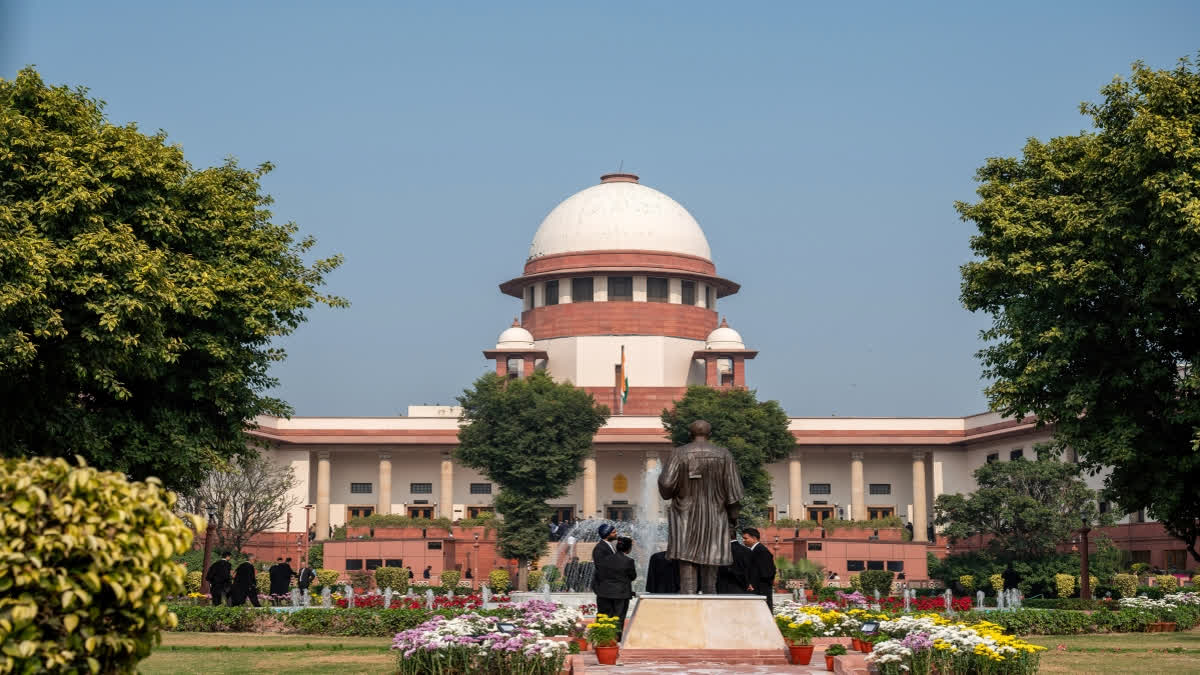New Delhi: The Supreme Court has recently quashed the conviction of a Telangana-based man booked for stalking and criminal intimidation after noting that the convict and the complainant married each other during the pendency of the appeal. The top court said if the man is sent to jail, then it would put his matrimonial relationship with the complainant in danger.
A bench comprising Justices B R Gavai and Sandeep Mehta said: "The offences under Section 354D IPC (stalking) and Section 506 IPC (criminal intimidation) are personal to the complainant and the accused-appellant".
The top court delivered the judgment on May 15, on an appeal filed by the appellant assailing the Telangana High Court judgment delivered on June 27, 2023. The High Court had upheld his conviction for offences under Sections 354D and 506-Part I of the Indian Penal Code (IPC) but reduced the sentence of imprisonment for both offences to three months.
The appellant was tried by the special fast track court, Suryapet and on April 9, 2021, the court acquitted him for the offences under Section 11 read with Section 12 of the Protection of Children from Sexual Offences Act, 2012 (POCSO Act) but convicted and sentenced him for offences under Sections 354D and 506-Part I IPC. The trial court sentenced him to two-year rigorous imprisonment for stalking and simple imprisonment for six months for criminal intimidation. The High Court reduced the sentences awarded to the accused-appellant to three months on both counts.
The top court was informed that the appellant and the complainant (victim) got married in August 2023, as per the Hindu rites and customs and their marriage has also been registered. The complainant brought on record an affidavit affirming their marriage.
The standing counsel for Telangana filed an affidavit sworn by the sub-inspector of the police station concerned, who verified that the appellant and the complainant have solemnised marriage with each other. The apex court was informed that the marriage was registered as per the Hindu Marriage Act, 1955 at the Office of Registrar and Sub Registrar, Kodad, Suryapet District, in September 2023.
The bench said it is evident from the record, that the appellant was initially charged for the offences under Sections 354D and 506 of IPC and Section 11 read with Section 12 of the POCSO Act. However, the trial court did not find the offences under the POCSO Act proved and acquitted the accused-appellant from these charges.
Justice Mehta, who authored the judgment on behalf of the bench, said the fact that the appellant and the complainant have married each other during the pendency of this appeal gives rise to a reasonable belief that both were involved in some kind of relationship even when the offences alleged were said to have been committed.
Justice Mehta said since the appellant and the complainant are now married, the affirmation of the High Court judgment would have disastrous consequences on the appellant, who would be sent to jail and it could put his matrimonial relationship with the complainant in danger.
"As a consequence, we are inclined to exercise the powers under Article 142 of the Constitution of India for quashing the conviction of the accused-appellant as recorded by the trial court and modified by the High Court," said the apex court, acquitting the man.



